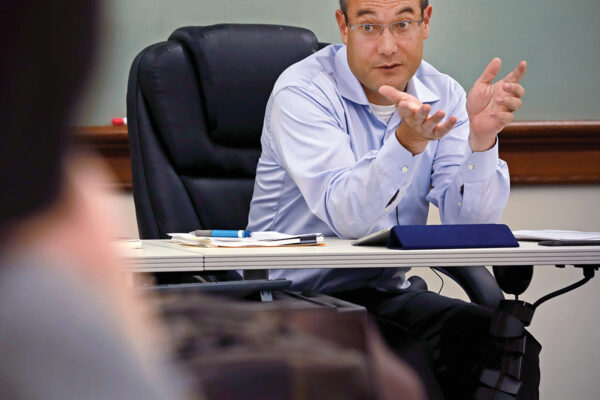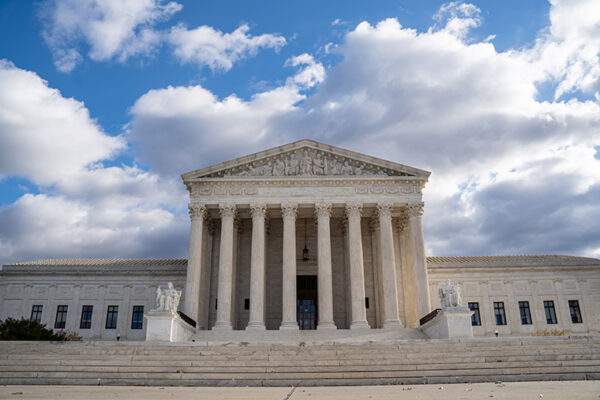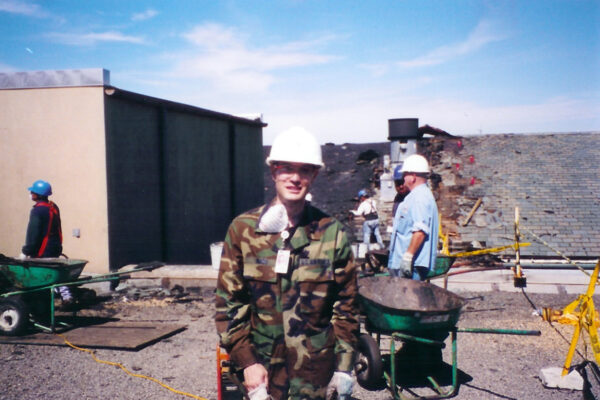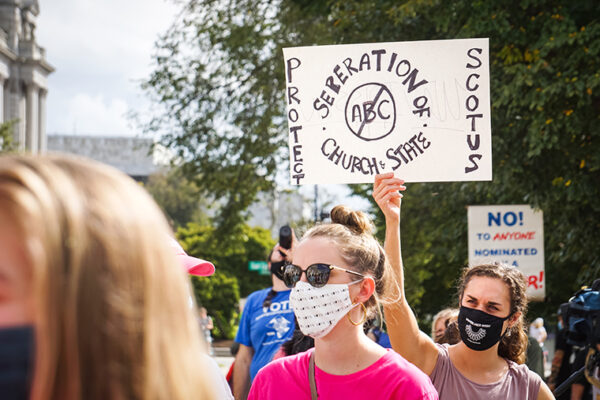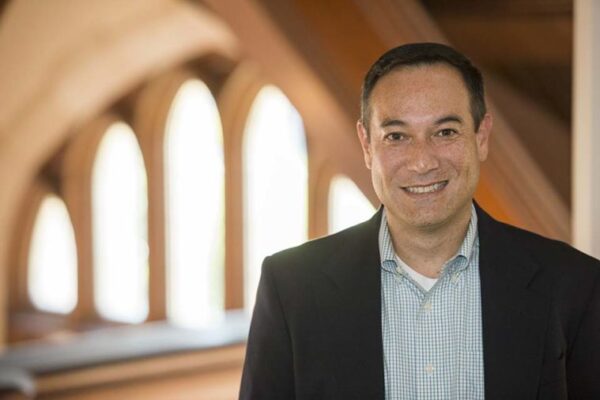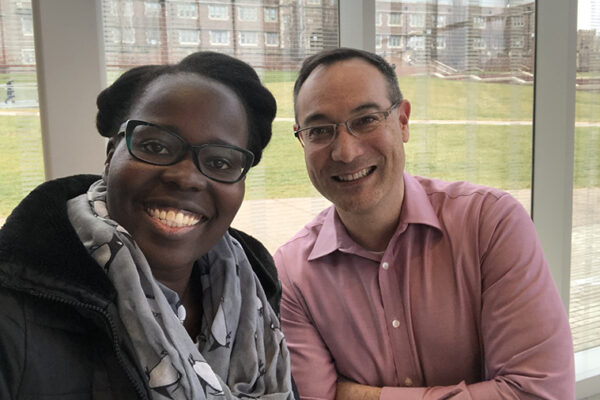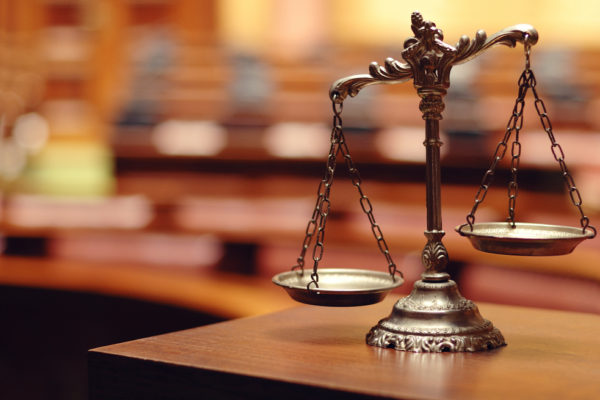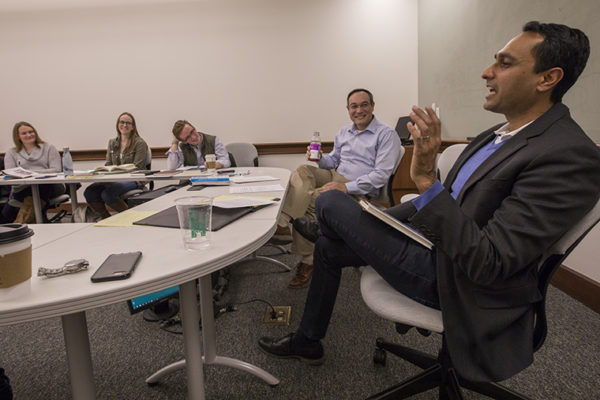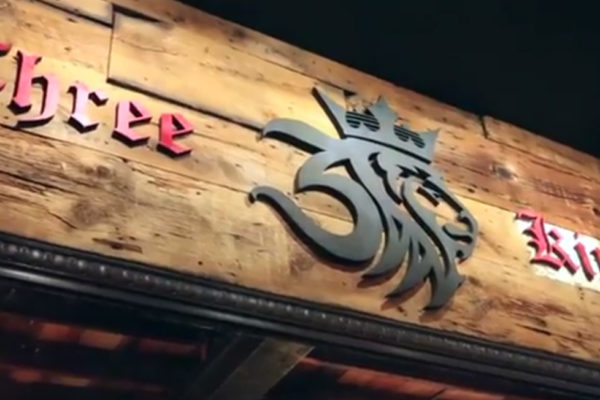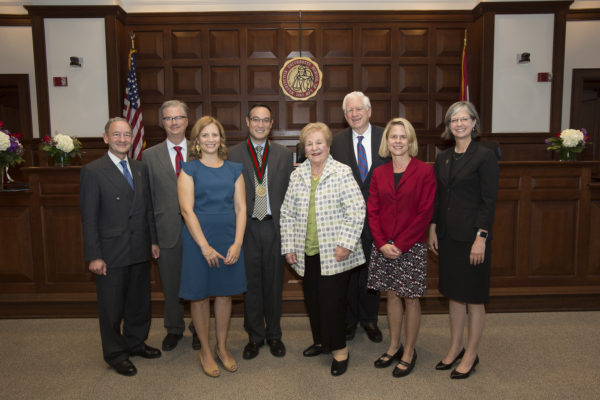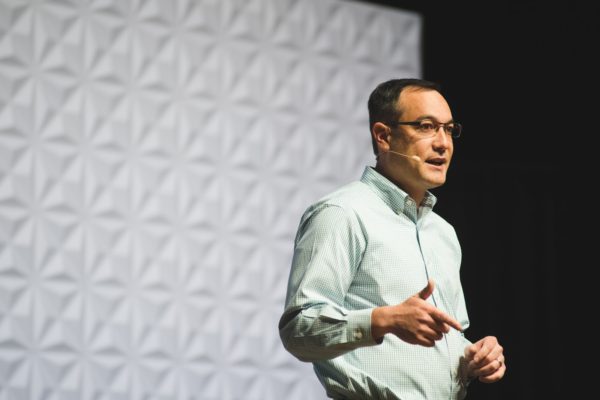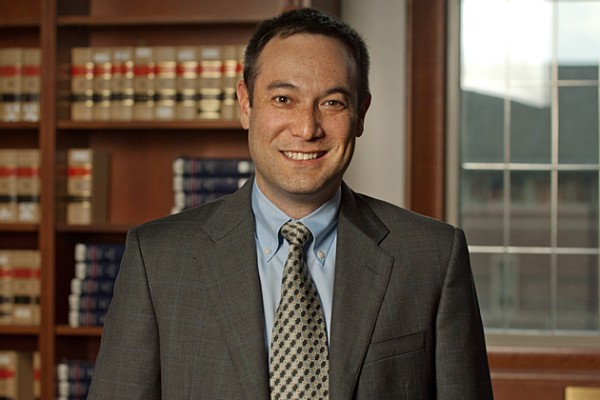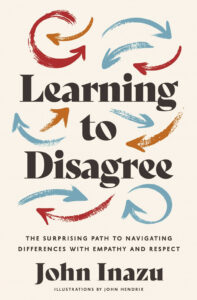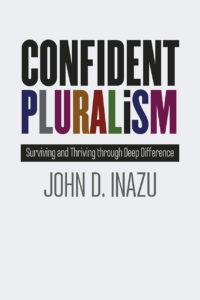Inazu’s scholarship focuses on the First Amendment freedoms of speech, assembly, and religion, and related questions of legal and political theory. His most recent book, Confident Pluralism: Surviving and Thriving Through Deep Difference, argues that we can and must live together peaceably in spite of deep and sometimes irresolvable differences over politics, religion, sexuality and other important matters.
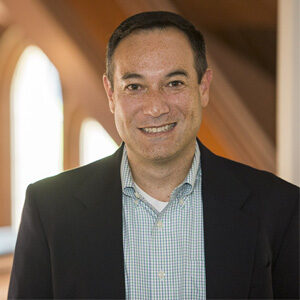
John Inazu
Sally D. Danforth Distinguished Professor of Law and Religion
Contact Information
- Phone: 314-935-6273
- Email: jinazu@wustl.edu
- Website: Website
Media Contact
In the media
Texas pushes church into state with bills on school chaplains, Ten Commandments
John Inazu, the Sally D. Danforth Distinguished Professor of Law & Religion
It’s Amy Coney Barrett’s Supreme Court Now
John Inazu, the Sally D. Danforth Distinguished Professor of Law & Religion
Religious exemptions from coronavirus vaccines are expected to become a legal battleground
John Inazu, the Sally D. Danforth Distinguished Professor of Law & Religion
Last-minute SBA regulation would make churches, religious businesses eligible for taxpayer-backed loans
John Inazu, the Sally D. Danforth Distinguished Professor of Law & Religion
NIH Director Tells Churches To Do The ‘Altruistic, Loving Thing’ And Stay Closed
John Inazu, the Sally D. Danforth Distinguished Professor of Law & Religion
Religious conservatives hopeful new Supreme Court majority will redefine religious liberty precedents
John Inazu, the Sally D. Danforth Distinguished Professor of Law & Religion
California Pastor Wants To Take Case Against COVID-19 Restrictions To Supreme Court
John Inazu, the Sally D. Danforth Distinguished Professor of Law & Religion
Amy Coney Barrett, Handmaids and Empathy for the Unfamiliar
One way to protect against assuming the worst of our fellow citizens is to work toward charitable descriptions of one another’s religious practices, writes John Inazu.
Amy Coney Barrett, Handmaids and Empathy for the Unfamiliar
John Inazu, the Sally D. Danforth Distinguished Professor of Law & Religion
The Whole Concept of ‘Unlawful Assembly’ Is a Mess
John Inazu, the Sally D. Danforth Distinguished Professor of Law & Religion
Recent SCOTUS Decisions On Religion Open Up New Questions
John Inazu, the Sally D. Danforth Distinguished Professor of Law & Religion
Poll shows a partisan split over virus-era religious freedom
John Inazu, the Sally D. Danforth Distinguished Professor of Law & Religion
The right to worship: Church and state clash over religious services in the coronavirus era
John Inazu, the Sally D. Danforth Distinguished Professor of Law & Religion
The stimulus package will cover clergy salaries. Some say the government has gone too far.
John Inazu, the Sally D. Danforth Distinguished Professor of Law & Religion
Another Break From The Past: Government Will Help Churches Pay Pastor Salaries
John Inazu, the Sally D. Danforth Distinguished Professor of Law & Religion
New coronavirus limits bring new religious freedom tension
John Inazu, the Sally D. Danforth Distinguished Professor of Law & Religion
‘We’re Going To Be Sacrificing Some Of Them At This Time’: Constitutional Rights And COVID-19
John Inazu, the Sally D. Danforth Distinguished Professor of Law & Religion
Close the Churches
John Inazu, the Sally D. Danforth Distinguished Professor of Law & Religion
Close the Churches
The public-health evidence makes clear that houses of worship should limit their gatherings, whether mandated or simply encouraged by government officials, writes John Inazu.
America’s Most Under-Appreciated Right
John Inazu, the Sally D. Danforth Distinguished Professor of Law & Religion
America’s Most Under-Appreciated Right
And Americans of all political stripes can choose to exercise the right of assembly as a peaceable but firm reminder that e pluribus unum was always more aspirational than embodied, knowing that the many must still work to live together in spite of their differences, writes John Inazu.
Democrats Are Going to Regret Beto’s Stance on Conservative Churches
John Inazu, the Sally D. Danforth Distinguished Professor of Law & Religion
Democrats Are Going to Regret Beto’s Stance on Conservative Churches
Threatening the loss of tax exemption to hundreds of thousands of religious organizations, including many that serve the most vulnerable in our society, is not the way to go, writes John Inazu.
Teaching the Bible in Public Schools Is a Bad Idea—For Christians
John Inazu, the Sally D. Danforth Distinguished Professor of Law & Religion
Court Sees ‘Hostility’ To Religious Beliefs In Case of Baker And Same-Sex Couple
John Inazu, the Sally D. Danforth Distinguished Professor of Law & Religion
Sex and Gender on the Christian Campus
John Inazu, the Sally D. Danforth Distinguished Professor of Law & Religion
Which actions are protected under the Freedom of Peaceful Assembly?
John Inazu, the Sally D. Danforth Distinguished Professor of Law & Religion
What the White House’s decision to forgo Ramadan event means for religion and politics under Trump
John Inazu, the Sally D. Danforth Distinguished Professor of Law & Religion
Many religious freedom advocates are actually disappointed with Trump’s executive order
John Inazu, the Sally D. Danforth Distinguished Professor of Law & Religion
Trump wants to end the Johnson Amendment today. Here’s what you need to know
John Inazu, the Sally D. Danforth Distinguished Professor of Law & Religion
Opinion: Searching for Safe Spaces
John Inazu, the Sally D. Danforth Distinguished Professor of Law & Religion
ACLU emerges as main Trump antagonist
John Inazu, the Sally D. Danforth Distinguished Professor of Law & Religion
In Religious Freedom Debate, 2 American Values Clash
John Inazu, the Sally D. Danforth Distinguished Professor of Law & Religion
How to unite in spite of Trump: Column
John Inazu, the Sally D. Danforth Distinguished Professor of Law
How the push for gay rights is reshaping religious liberty in America
John Inazu, associate professor of law
Opinion: We disagree on the ‘self-evident truths’ in the Declaration of Independence. But we always did.
John Inazu, associate professor of law
Stories
Can’t we all just get along?
A new book from the School of Law’s John Inazu offers a path for disagreeing productively and living joyfully in our divided society.
SCOTUS ruling hints at why religious freedom means living with views we don’t like
While the ruling in the Maine case is unsurprising given the court’s recent decisions around freedom of religion, some of the rhetoric around the case misrepresents the role of constitutional protections for religion in a pluralistic society, said John Inazu, expert on law and religion at Washington University in St. Louis.
Inazu was in Pentagon on 9/11. He reflects on the day
John Inazu, the Sally D. Danforth Distinguished Professor of Law and Religion, was working in the Pentagon on Sept. 11, 2001, when a plane crashed into the building. Here, he reflects on the day and what it means to him now.
Judge Barrett’s religion not a confirmation issue
Questions about Amy Coney Barrett’s religious affiliation and beliefs have dominated public discussion since President Trump announced that she was his pick to fill the U.S. Supreme Court seat left vacant by Ruth Bader Ginsburg’s passing. While her Catholicism is considered controversial by some, should it impact her confirmation? A Washington University in St. Louis law professor weighs in.
Amy Coney Barrett, Handmaids and Empathy for the Unfamiliar
“How do we affirm and extend the ethic that welcoming religiously diverse people, nurturing positive relations among them, and facilitating their contributions to the nation is part of the definition of America?” When it comes to the religious practices of our fellow citizens, the answer to that question begins with a commitment to empathy and charity rather than bigotry or ignorance.
Living faithfully in a world of difference
In a society that is increasingly diverse yet less tolerant, how can Christians live faithfully while respecting those whose beliefs are radically different? A Washington University in St. Louis scholar says before we can find common ground with others, we must start by acknowledging and being comfortable with our own beliefs that make us different.
Class explores intersection of law, race and design
Law and graphic design. Not necessarily two disciplines one thinks of as being related. But a new class at Washington University in St. Louis is using concepts from each to help students wrestle with the challenges of race, place and inequality.
Close the Churches
As the Christian author Andy Crouch recently advised, one of the best ways to demonstrate that love now is by suspending physical gatherings, including worship services—for the sake of our neighbors.
America’s Most Under-Appreciated Right
Americans of all political stripes can choose to exercise the right of assembly as a peaceable but firm reminder that e pluribus unum was always more aspirational than embodied, knowing that the many must still work to live together in spite of their differences.
Democrats Are Going to Regret Beto’s Stance on Conservative Churches
Our nation’s politicians can choose to make that possibility more or less likely with their rhetoric and policies in the years to come. Threatening the loss of tax exemption to hundreds of thousands of religious organizations, including many that serve the most vulnerable in our society, is not the way to go.
Crime and punishment
Two students in John Inazu’s first-year “Criminal Law” class embodied the lessons taught during the class about theories of punishment, questions of whether criminal justice can remedy injustice and issues of equity in sentencing.
Why I’m still confident about ‘Confident Pluralism’
The deep divisions in our society are not going away. But in the midst of our differences, Christians can model tolerance, patience, and humility with our neighbors. We can bear witness to the faith, hope, and love of the gospel. We can be confident in our own beliefs as we engage charitably in a world of difference.
The challenges of religious diversity in a university context
One day, a law professor and a visiting scholar took a walk in St. Louis’ historic Forest Park. A friendship, partnership and a unique class called “Religion, Politics, and the University” followed, which takes a deep dive into how a diverse democracy can develop and be successful in a pluralistic society.
The public house as public forum
Without public spaces for debate and discussion, our ideas and our expressions stay in our private spaces and we don’t have opportunities to engage with each other, argues John Inazu, the Sally D. Danforth Distinguished Professor of Law & Religion.
Inazu installed as Sally D. Danforth Distinguished Professor of Law and Religion
John Inazu has been installed as the inaugural Sally D. Danforth Distinguished Professor of Law and Religion. A lecture and a reception to celebrate the occasion were held Sept. 7 in the Bryan Cave Moot Courtroom and Crowder Courtyard in Anheuser-Busch Hall.
Washington People: John Inazu
John Inazu, associate professor of law, discusses his research on the concept of “confident pluralism,” the idea we can and must live together peaceably in spite of deep differences over politics, religion, sexuality and other important matters.
WashU Expert: ‘Thoughts and prayers’ for San Bernardino highlight our deep differences
It’s a response made all too often by politicians in the wake of a mass shooting or violent act of terrorism: Keeping all in “thoughts and prayers.” This week, in the wake of the Dec. 2 shooting incident in San Bernardino, Calif., that sentiment seemed to reached a breaking point and shed light on the wide political and rhetorical chasm dividing the country, said John Inazu, JD, an expert on law and religion at Washington University in St. Louis.
What is confident pluralism?
How do we get back to forming meaningful relationships that can move toward common ground, despite our deep ideological differences? The answer lies in a confident pluralism, said John Inazu, an expert on law and religion.
WashU Expert: Religious tax exemptions foster diverse viewpoints
The Supreme Court decision that the Constitution requires that gay couples be allowed to marry no matter where they live has caused many religious conservatives to feel that the tax-exempt status of religious institutions is under threat. There is a fundamental reason we should protect religious organizations — even those we disagree with, said John Inazu, JD, associate professor of law at Washington University in St. Louis.
‘Re-Assembling Labor’: Unions could do well to remember roots of assembly
While political and judicial rhetoric around unions has softened in recent years, images of the past still haunt labor, argue two Washington University in St. Louis researchers. In “Re-Assembling Labor,” published online Nov. 5 in Social Science Research Network, the authors seek to draw the lessons of assembly into contemporary labor law — to re-assemble labor law around the theory and doctrine of assembly that formed its early core.
SCOTUS preview: First Amendment expert on legislative prayer and the “mistakes of the past, present and future”
The Supreme Court is expected to rule this spring on whether prayers before town hall meetings violate the First Amendment clause that prohibits the establishment of religion. John Inazu, a First Amendment expert and professor of law at Washington University in St. Louis, highlights one dimension of the litigation often unaddressed by commentators: what he calls the “mistakes of the past, present and future” adopted by proponents of legislative prayer.
Law school’s partnership with Northwest Academy of Law spans mentoring, coaching and support for peace summit
Washington University in St. Louis law students are taking their commitment to public service to the next level through a growing partnership with Northwest Academy of Law. With the assistance of law faculty and through their own initiatives, law students are reaching out to the inner-city St. Louis high school’s students to provide mentoring and law-related educational experiences.
SCOTUS preview: First Amendment expert supports rights to speech, assembly in Supreme Court brief
Anti-abortion groups are well known for demonstrating and sidewalk counseling at women’s reproductive health facilities, but a Massachusetts statute criminalizes even peaceful expression on public sidewalks near these clinics. An upcoming U.S. Supreme Court case will determine the constitutionality of Massachusetts’ selective exclusion law, which applies only to streets and sidewalks near reproductive health-care facilities. “If Massachusetts can close off the sidewalks surrounding reproductive health centers to peaceful expressive activity, then the government can prohibit expression in a wide range of circumstances,” says John Inazu, JD, First Amendment expert and associate professor of law at Washington University in St. Louis.
Three challenges for the First Amendment
A group of some of the country’s top scholars in First
Amendment law recently gathered at Washington University in St. Louis to discuss pressing challenges
being faced by the first of our Bill of Rights. Three issues rose to the
top of the list for Washington University’s first amendment experts:
free expression in a digital age; impaired political debate; and
weakened rights of groups.
The importance of groups: First Amendment expert testifies before United States Commission on Civil Rights
John Inazu, JD, first amendment expert and professor of law at Washington University in St. Louis, was invited to provide testimony to the United States Commission on Civil Rights briefing on “Peaceful Coexistence? Reconciling Non-discrimination Principles with Civil Liberties.”
Religious holiday displays – three wise men and a heap of legal troubles
The upcoming holiday season brings with it the
annual gaze upon religious displays — and the legal issues that come
with them. “The Supreme Court’s approach to public religious displays
under the Establishment Clause has been less than clear,” says John
Inazu, JD, expert on religion and the constitution and professor of law
at Washington University in St. Louis.“Some commentators have
described it as the ‘three plastic animals rule’ –a Christian nativity
scene on public property passes muster if it is accompanied by a
sufficient combination of Rudolph, Frosty, and their friends.” Inazu
says that future litigation will likely press against this
line-drawing, but even apparent victories for religious liberty may come
at a significant cost.
Religion and the Constitution expert discusses Pulpit Freedom Sunday
The annual celebration of Pulpit Freedom Sunday on Oct. 7
encourages pastors to preach politics from the pulpit. The Internal
Revenue Code exempts certain organizations including churches from
taxation, but prohibits them as a condition of tax-exemption from “any
political campaign on behalf of (or in opposition to) any candidate for
public office.” “Both the restriction and Pulpit Freedom Sunday
raise important questions about the relationship between church and
state, the role of religious argument in political discourse, and the
significance of clergy in political debate,” says John Inazu, JD,
professor of law at Washington University in St. Louis and expert on religion and the Constitution.
Contraception fight not just ‘a Catholic thing’ says Inazu in USA Today
First amendment expert John Inazu, JD, associate professor of law at Washington University in St. Louis, argues in a USA Today opinion column that evangelicals are wise to join the legal fight over the Department of Health and Human Services’ contraception mandate.
National Day of Prayer takes on added significance in 2012
The National Day of Prayer typically sparks debate about whether the day violates the establishment clause from the First Amendment to the U.S. Constitution. This year’s observance on May 3, however, likely will take on added significance, says John Inazu, JD, first amendment expert and professor of law at Washington University in St. Louis. The reason? 2012 marks the 50th anniversary of the Supreme Court’s decision in Engel v. Vitale, which invalidated official prayer in public schools.
New book explores forgotten freedom of assembly
Freedom of assembly has become the forgotten constitutional right, with courts’ attention focused more on freedoms of association and speech. Both the Occupy and Tea Party movements, however, are reminders of how the right to assemble has been “at the heart of some of the most important social movements in American history: antebellum abolitionism, women’s suffrage and the Civil Rights Movement,” says John Inazu, JD, PhD, associate professor of law at Washington University in St. Louis. In his new book, Liberty’s Refuge: The Forgotten Freedom of Assembly, published last month by Yale University Press, Inazu examines why freedom of assembly has become “a historical footnote in American law and political theory,” and what has been lost with the weakening of protections for private groups.
Books
Learning to Disagree
Learning to Disagree: The Surprising Path to Navigating Differences with Empathy and Respect
Are you discouraged by our divided, angry culture, where even listening to a different perspective sometimes feels impossible? If so, you’re not alone, and it doesn’t have to be this way. “Learning to Disagree” reveals the surprising path to learning how to disagree in ways that build new bridges with our neighbors, coworkers and loved ones — and help us find better ways to live joyfully in a complex society.
Confident Pluralism
Surviving and Thriving Through Deep Difference
In “Confident Pluralism,” John D. Inazu analyzes the current state of the country, orients the contemporary United States within its broader history, and explores the ways that Americans can—and must—strive to live together peaceably despite our deeply engrained differences. Inazu not only argues that it is possible to cohabitate peacefully in this country, but also […]
